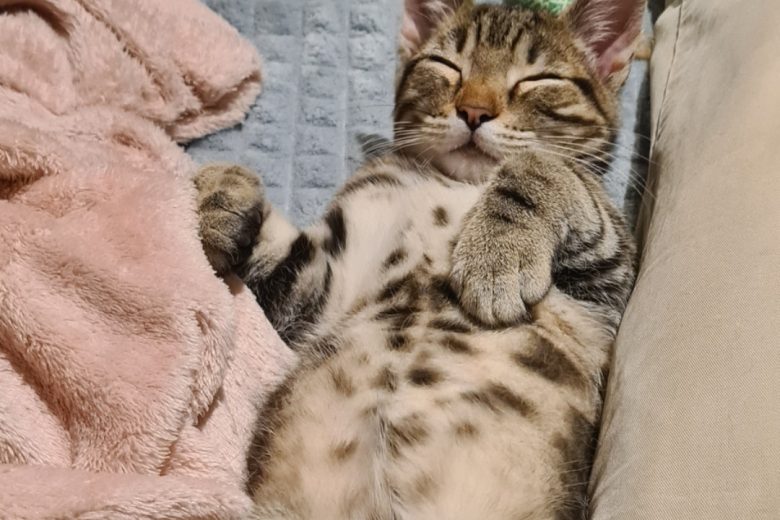The Timing is Key: At What Age Can My Cat Get Neutered? A Comprehensive Guide for Owners
Neutering, or castration, is a common and responsible practice for cat owners. It offers numerous health and behavioral benefits for your feline companion. However, one of the most frequently asked questions is: At what age can my cat get neutered? Understanding the optimal timing is crucial for maximizing these benefits and ensuring your cat’s well-being.
Why Neutering Matters: Beyond Population Control
Before diving into the age question, let’s explore the compelling reasons why neutering is recommended.
- Population Control: Neutering prevents unwanted litters, contributing to responsible pet ownership and reducing the number of stray and homeless cats.
- Behavioral Benefits: Neutering can reduce or eliminate undesirable behaviors, such as urine spraying, territorial aggression, and roaming.
- Health Benefits: Neutering lowers the risk of certain health problems, including testicular cancer and prostate issues in male cats.
- Reduced Roaming: Neutered cats are less likely to roam, reducing their risk of getting lost or injured.
- Improved Temperament: Many owners report that their cats become calmer and more affectionate after neutering.
So, At What Age Can My Cat Get Neutered?
Traditionally, the recommended age for neutering was around six months. However, veterinary practices have evolved, and earlier neutering is now widely accepted and often preferred.
- Early-Age Neutering (6-14 weeks): Many veterinarians now recommend neutering kittens as young as 6-14 weeks of age. This practice is particularly common in shelters and rescues to prevent unwanted litters.
- Traditional Age (6 Months): While early-age neutering is gaining popularity, many veterinarians still perform the procedure around six months of age.
- Adult Cats: Adult cats can be neutered at any age, but older cats may have a slightly higher risk of complications.
The Benefits of Early-Age Neutering
- Faster Recovery: Younger kittens tend to recover more quickly from surgery.
- Reduced Risk of Complications: Early-age neutering is generally considered safe and has a low risk of complications.
- Prevention of Undesirable Behaviors: Neutering before puberty can prevent the development of undesirable behaviors, such as urine spraying.
- Population Control: Early-age neutering helps prevent unwanted litters at a younger age.
Factors to Consider When Determining the Age
While early-age neutering is generally safe, several factors should be considered:
- Veterinarian’s Recommendation: Always consult with your veterinarian to determine the best age for your cat. They can assess your cat’s health and provide personalized recommendations.
- Health Status: Ensure your kitten is healthy and has received their initial vaccinations before the procedure.
- Breed: Some breeds may have specific health considerations that influence the timing of neutering.
- Shelter or Rescue Policies: Shelters and rescues often have specific policies regarding the age of neutering.
The Neutering Procedure: What to Expect
The neutering procedure is a relatively simple and routine surgery.
- Anesthesia: Your cat will be given anesthesia to ensure they are comfortable and pain-free during the procedure.
- Incision: A small incision is made in the scrotum.
- Removal of Testicles: The testicles are removed.
- Closure: The incision is closed with sutures or surgical glue.
- Recovery: Your cat will typically recover quickly from the procedure.
Post-Operative Care
Following the neutering procedure, it’s essential to provide proper post-operative care.
- Monitor Incision: Check the incision site daily for any signs of redness, swelling, or discharge.
- Restrict Activity: Limit your cat’s activity for a few days to allow the incision to heal.
- Prevent Licking: Use an Elizabethan collar (cone) to prevent your cat from licking or biting the incision.
- Follow Veterinarian’s Instructions: Follow your veterinarian’s instructions regarding pain medication and follow-up appointments.
Addressing Common Concerns
- “Will neutering change my cat’s personality?” Neutering typically reduces aggressive behaviors and roaming but does not change a cat’s fundamental personality.
- “Will my cat become overweight after neutering?” Neutering can slow down metabolism, so it’s essential to monitor your cat’s weight and adjust their diet accordingly.
- “What age is too late to neuter my cat?” Adult cats can be neutered at any age, but the benefits may be less pronounced if the behaviors are already established.
- “At what age can my cat get neutered?” The answer depends on a variety of factors, but early neutering is becoming more common.
The Long-Term Benefits of Neutering
Neutering provides numerous long-term benefits for your cat and the community.
- Improved Health: Neutering reduces the risk of certain health problems, extending your cat’s lifespan.
- Reduced Stray Population: Neutering helps control the stray cat population, reducing animal suffering.
- Improved Quality of Life: Neutering can improve your cat’s quality of life by reducing stress and anxiety.
Conclusion
Determining at what age can my cat get neutered is a crucial decision for responsible cat ownership. While early-age neutering is gaining popularity, it’s essential to consult with your veterinarian to determine the best timing for your individual cat. By understanding the benefits and considerations, you can ensure a healthy and happy life for your feline companion.
